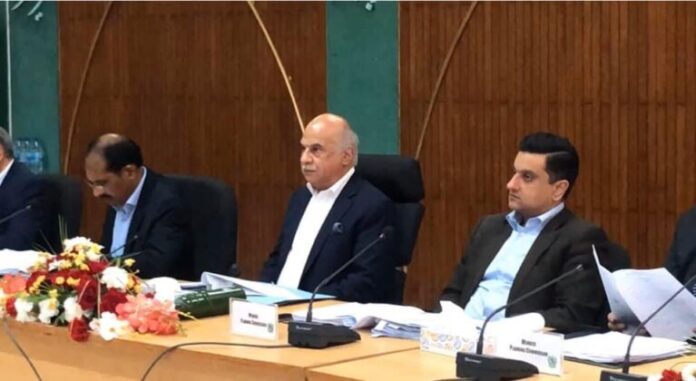ISLAMABAD: The Central Development Working Party (CDWP) on Thursday approved four projects worth Rs16.112 billion and recommended two projects worth Rs44.172 billion to the Executive Committee of the National Economic Council (ECNEC) for consideration.
During the CDWP meeting, which was chaired by Planning Commission Deputy Chairman Mohammad Jehanzeb Khan, projects related to energy, culture, sports & tourism, transport & communication, food & agriculture and governance were discussed.
Planning & Development’s Additional Secretary Humair Karem, senior officials from the Planning Commission and federal ministries/divisions were also present on the occasion, while representatives from provincial governments participated via video link.
A project related to energy titled ‘Establishment of 48MW Jagran Hydropower Station Phase-11, District Neelum, AJK’, worth Rs11.37 billion, was referred to ECNEC for approval. The proposed project envisages construction of 48MW Jagran Hydropower Station. The project is a run-off river type and located in District Neelum.
Meanwhile, a project related to culture, sports and tourism, namely ‘Heritage & Urban Regeneration in Lahore Tourism Development — Lahore Fort and its buffer zone’, worth Rs3.65 billion, was approved in the meeting. The project envisages restoration and preservation of various components of Lahore Fort along with rehabilitation, reconnection of the fort with Walled City and up-gradation of outskirts.
Three projects related to transport & communication were approved in the meeting. These included ‘Rehabilitation of Pasni Fish Harbor Project’ (Rs1.45 billion), ‘Infrastructure up-gradation of Karachi Shipyard & Engineering Works Ltd’ (Rs7.78 billion) and ‘Construction of Road from Zeyara to Dabori, District Orakzai’ (Rs3.21 billion).
Moreover, a project related to Food & Agriculture, namely ‘Locust Emergency and Food Security Project’, worth Rs32.8 billion, was referred to ECNEC. The project, which will be carried out in 18 districts of four provinces, aims to enhance food security and growth of the sector through control of the locust outbreak, strengthening the national food security system and mitigating negative social and economic impact associated with locust attack.




